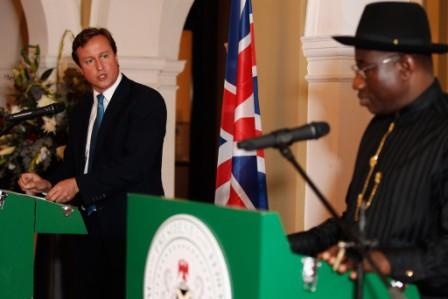The British government is considering cutting off aid to Nigeria after the anti-gay bill was passed on Thursday by the House of Representatives, following in the footsteps of the Senate which passed its own version of the bill in November 2011.
This was made known by the British Prime Minister, David Cameron on a British Broadcasting Corporation (BBC) programme monitored in Lagos, saying that he would take up the issue with President Goodluck Jonathan soon, where he would restate his government’s strong opposition to the passage of the bill.
The prime minister was reacting to a question by a Nigerian resident in London, Bisi.
“When we meet with Nigerian politicians and leaders, we will be clear about those things we agreed on. We have to be clear where we disagree. We will make clear where we stand on those issues,” he said.
When asked whether Britain would consider stopping a projected 50 per cent increase in aid to Nigeria or cutting it outright, Cameron said, “Nothing is off the table. We need to have these conversations. We also have some very important objectives with Nigerians, for instance on how to deal with the appalling rates of poverty in Northern Nigeria, which are part of the problems confronting the country.”
Britain and some Western Nation had previously expressed opposition to the bill.
The United States government had in December last year also threatened to cut off aid to Nigeria after the Senate had passed its own version.
American aid to Nigeria supports funding for the fight against HIV/AIDS through the President’s Emergency Plan for AIDS Relief (PEPFAR), which has contributed immensely in providing anti-retrovirals to HIV patients almost free.
Cameron had in October 2011 threatened to cut off aid to countries which ban gay and lesbians.

